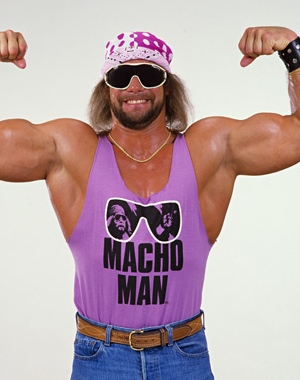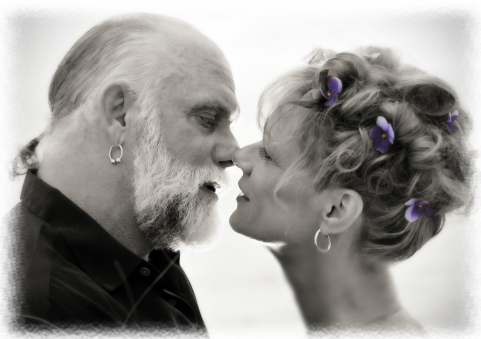|
|---|
Monday, March 22, 2010

"Let me come home," I said. But she was too worried about what I might do in Chicago.
"Go back to rehab," she said in her brittle voice. My father had recently divorced her and she was living with a caretaker, who I could hear in the background.
I knew I couldn't stay in Vegas anymore. I was making too many enemies and I didn't have any money. They allowed me to stay at the Backpacker's Inn each night because I cleaned the rooms during the day.
My mother paid for my plane ticket and I flew out to Tucson, Arizona, where I had already been to rehab but was kicked out the 28th day when I refused to do an after-care program. I was going back there because I had nowhere else to go.
The thing about Cottonwood de Tucson is that it's filled with lots of rich people and celebrities. It's in the middle of the desert and has a gigantic swimming pool, palm trees, and ten or fifteen resort-style bungalows. The food is gourmet and healthy, and the chef greets you as you enter the dining hall.
My roommate was the drummer of a famous musician, who was there for a pot addiction. He was fifteen years old. To me, however, it appeared like he had an addiction to drawing penises. He would draw them everywhere with a black sharpie, benches, sheets of paper, his arm.
There were others too. This one lanky man, about six feet tall, wore a cowboy hat and yodeled at night. He strummed on his guitar and made up songs on the smoking bench. He said he was a television writer in LA and wrote the first season for NYPD Blue. He left the center a couple times in a cab, but was brought back by his wife.
But when I returned to Cottonwood after Vegas, it wasn't the same. I didn't recognize anyone, other than some of the staff members. The first day I guess you could say I got off to a bad start. We were only allowed to smoke at the smoking bench, and I was lighting up wherever I wanted. They yelled at me, told me to put out my cigarette.
I was already getting sick of the daily mantras and routines. I pretended to be involved but my mind kept wandering back to the places I'd been on my own, without any adults telling me what to do.
On the second night, the leaders called us to the rotunda for a medallion ceremony. You always have new people coming in and out of these places. We were expected to say goodbye to the ones who completed the program, and there was a circle where you passed around the medallion and made a wish for them.
On my way to the rotunda, the thought crossed my mind, "What if I just ran away?" It was an impulsive thought, but when an impulse takes hold of me, it's like I've been abducted by an alien race. The voice of reason never comes through in these moments. It's only the urge that speaks to me. A whole new reality can be made in that moment, and I feel alive.
Everyone was far ahead of me, most of them had already entered the rotunda for the medallion ceremony. I turned around and walked back to my room. I gathered my things and threw what I could fit into my backpack. Then I started to creep along the outskirts of the compound toward the highway.
There were no security guards, no high walls to scale. The rehab center proudly called itself an "open" treatment facility, where you were "free to leave at any time."
And so I left.
I'm not going to lie here. It really thrilled me to do outrageous things when I was younger. I'm not the type to go speeding in cars or jumping off cliffs, but a singular rebellious act filled me with extreme self-gratification. And it still does sometimes, although I've learned to choose my rebellious acts carefully.
But that doesn't mean that I wasn't nervous when this happened. I didn't want to get caught, and my heart was beating violently in my chest. I really wanted to make it out of there without anyone seeing me.
I followed a long driveway which begins at the admission office and extends about a quarter of a mile to the highway. The driveway was pitch black and strewn with rocks. To the side, there was a thick barrier of trees and some houses with their lights on.
The highway curved around the head of the Cottonwood entrance, and a car passed me at breakneck speed. I realized I had to clear from this area as soon as possible or risk being dragged back into the Garden of Eden. So I ran along the shoulder under a canopy of trees for a hundred paces and then sprinted across the highway.
The highway was an elevated pavement running between two large ditches on either side. The shoulder was thin and I had to balance myself on the edge of it while watching for oncoming cars. I figured I was better off in the ditch than making this tight-rope walk in the dark. So I slid my body down into the trench, where some debris and empty beer bottles were scattered at the base.
Unfortunately, I couldn't just walk straight through the ditch. In some places, the ditch stopped completely at a wall of dirt and sand. I waited in the ditch for a couple minutes and then tried to see what the desert looked like on the other side. If I could pull myself up somehow, I would be at the foot of the desert.
I was born in Illinois and I'd never trekked across a desert before. What you don't think about the desert at night is how different the landscape is, really severe, stark territory. When I climbed onto the other side of the ditch, I felt watched by the vegetation. There were vast open tracts of land and then clumps of knee-high prickly bushes. You couldn't walk in a straight line. You had to zigzag around the plants and cacti. I kept shielding my legs from the snags of bushes. Thorns everywhere. My shins were bleeding.
In the distance, I heard a car coming and so I dropped down on my stomach next to a prickly brush. Through the brush, I could see a white van, the same white van they had at Cottonwood to haul the patients from one place to another, and I knew it was Cowboy Bill driving that night because he was the only one on transportation duty. In fact, before the medallion ceremony, he had just taken us to an AA meeting in Tucson. He told jokes on the way and everyone laughed.
I waited in the desert for a long time, keeping myself hidden. The moon shed a little light over the area where I was sitting, and I took out my journal to scrawl a couple sentences. Throughout my drug addiction, I carried a journal everywhere I went, and I felt compelled to report on my state of mind during these climactic moments.
As some of you may know, I began writing these stories as a novel. One of the reasons for this is it felt like a novel as I was going through it. The divorce between my parents, my mother's illness, and the numerous psych wards, rehabilitation centers, and halfway houses I encountered, made up a chain of surreal events. But the strangest thing of all was my delusion, my magical thinking, that I could alter the course of events by actions such as this one. I imagined myself as a heroic figure, rebelling against the dictates of my father, and all authority by extension, in order to reclaim a sense of my own free will, however twisted, and not give in to a ready-made script handed to me by someone else.
After about forty-five minutes, I was becoming more aware of the sounds and movements around me. A pack of coyotes howled somewhere in the distance. An owl appeared in the crook of a cactus and turned its head 180 degrees. I imagined snakes slithering across the desert floor when I heard the bushes shaking. So I threw my backpack over my shoulder and in a hurry to get out of there, I climbed over several dozen thorn bushes, which ripped the skin under my thighs.
Once I got to the edge of the desert, I gladly jumped into the ditch, which to me was a far better place than the eerie desert. It was probably two or three in the morning when I stepped onto the shoulder of the highway, with not a soul in sight.
A car passed along the highway every twenty minutes or so. I stuck out my thumb each time, but nobody stopped. It was hard to believe that I was actually hitchhiking like this. At first I exulted in the sheer fact that I was out there, on my own, giving myself up to perfect chance. But as each car passed, I started to feel less and less hopeful that someone would pick me up. The stretch of highway ran on to infinity, it seemed, with only the ridge of the desert and some occasional towering cacti to provide me a sense of direction.
Every time a car passed me, I thought it would be the last. Then I saw a pickup truck slow down ahead. The red, rust-bitten pickup went in reverse until it was right where I was standing. A man in his late thirties leaned over and pushed open the door. He had on a nice pair of jeans, which I noticed for some reason. I think I was looking for clues as to whether I should get in his truck. I got in the vehicle anyways.
Labels: addiction, essay, Novel, Novel of Life, rehab
0 Comments:
Subscribe to:
Post Comments (Atom)














